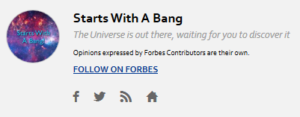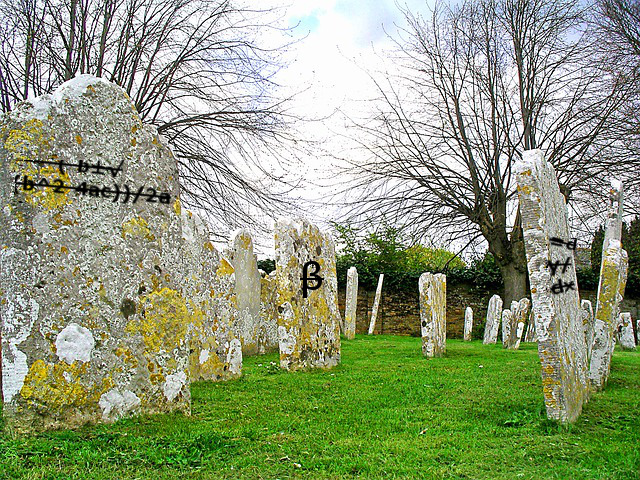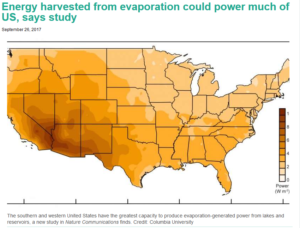 Here’s a fine article about astrophysics and scientific enquiry from Ethan Siegel: https://www.forbes.com/sites/startswithabang/2017/11/16/scientific-theories-never-die-not-unless-scientists-choose-to-let-them/#3ae8a4a24ccb
Here’s a fine article about astrophysics and scientific enquiry from Ethan Siegel: https://www.forbes.com/sites/startswithabang/2017/11/16/scientific-theories-never-die-not-unless-scientists-choose-to-let-them/#3ae8a4a24ccb
Mr. Siegel summarizes scientific investigation thus:
“When it comes to science, we like to think that we formulate hypotheses, test them, throw away the ones that fail to match, and continue testing the successful one until only the best ideas are left. But the truth is a lot muddier than that. The actual process of science involves tweaking your initial hypothesis over and over, trying to pull it in line with what we already know. It involves a leap-of-faith that when you formulate your theory correctly, the predictions it makes will be even more successful, across-the-board, than any other alternatives. And when things don’t work out, it doesn’t always necessitate abandoning your original hypothesis. In fact, most scientists don’t. In a very real way, scientific theories can never truly be killed. The only way they ever go away is if people stop working on them.”
 Tweaking is the draw. And it truly is fun to discover when errors are in a hypothesis, as this offers the chance to discover and tweak further. This is happening with the 17th Century Atlantic Seaboard limestone smuggling hypothesis at my Cartoproblematica page. There’s an error in part of the geology. That’s neat. It means more discovery. And got me refocusing on another aspect of that same geology – narrowing the physical search area from ~1200 km2 down to 138 km2, and thence down to 4.5 km2.
Tweaking is the draw. And it truly is fun to discover when errors are in a hypothesis, as this offers the chance to discover and tweak further. This is happening with the 17th Century Atlantic Seaboard limestone smuggling hypothesis at my Cartoproblematica page. There’s an error in part of the geology. That’s neat. It means more discovery. And got me refocusing on another aspect of that same geology – narrowing the physical search area from ~1200 km2 down to 138 km2, and thence down to 4.5 km2.
- – David Huer
Image: Churchyard – nige_hurll modified by D.Huer
https://pixabay.com/en/churchyard-gravestones-graveyard-2812800/
CC0 Creative Commons
* Starts With A Bang “is dedicated to exploring the story of what we know about the Universe as well as how we know it, with a focus on physics, astronomy, and the scientific story that the Universe tells us about itself. Written by Ph.D. scientists and edited/created by astrophysicist Ethan Siegel, our goal is to share the joy, wonder and awe of scientific discovery.”

